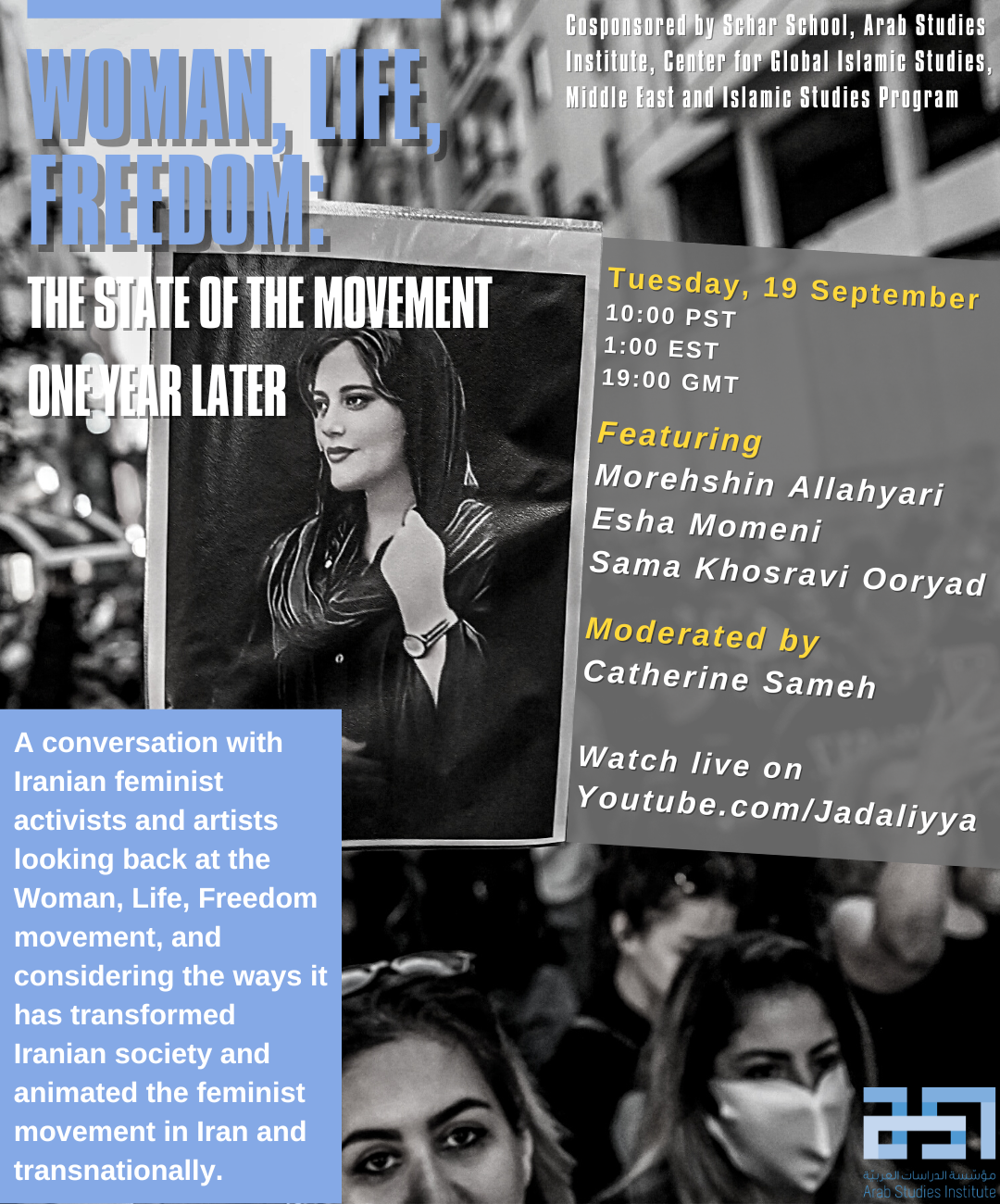Women, Life, Freedom
The State of the Movement One Year Later
Tuesday, 19 September 2023
10:00 AM PST | 1:00 PM EST | 19:00 GMT
In Conversation
Morehshin Allahyari
Esha Momeni
Sama Khosravi Ooryad
Moderated by
Catherine Sameh
Cosponsored by the Schar School of Public Policy, Arab Studies Institute, the Center for Global Islamic Studies, and Middle East and Islamic Studies (GMU)
This conversation with Iranian feminist activists and artists will look back at the Woman, Life, Freedom movement, considering the ways it has transformed Iranian society and politics and animated the feminist movement in Iran and transnationally.
Featuring
Morehshin Allahyari (Persian: موره شین اللهیاری), is a NY based Iranian-Kurdish artist using 3D simulation, video, sculpture, and digital fabrication as tools to re-figure myth and history. Through archival practices and storytelling, her work weaves together complex counternarratives in opposition to the lasting influence of Western technological colonialism in the context of MENA (Middle East and North Africa).
Dr. Esha Momeni is an Iranian American scholar and activist. She received her Ph.D. in Gender Studies at the University of California, Los Angeles (UCLA), where she is currently a lecturer. In addition, she holds a master’s degree in mass communication. Her research and teaching specializations include modern Iran and the Middle East, media and popular culture, and gender and sexuality. Her activism started in 2006 when she joined the One Million Signatures Campaign--a non-hierarchical movement demanding an end to discriminatory laws against women in Iran. Since, she has been engaged in various projects concerning gender in the Middle East. Following the tragic killing of Zhina/Mahsa, she has been actively involved in two projects, including Peyvandestan.com, a website designed to chart the diverse groups within the movement and serve as a platform for activists to foster connections and collaborate.
Sama Khosravi Ooryad is a feminist activist and new media studies & digital cultures researcher based in Sweden. She is a member of the transnational network of Feminists4Jina.

